Text
Personhood and Genre Fiction | My 2024 Reading Journey So Far
I’ve been working as a Library Assistant for six months now, and boy has it been a massive jolt to my love of reading. It’s hard not to be excited about digging into a book when you’re surrounded by them all day, and I credit that feeling with being responsible for my reading more books for pleasure in the first four months of 2024 than I have in the previous seven years combined. As a reach a modest milestone in my reading for the year, I wanted to reflect on what I’ve observed to be a common theme among the books that have most captured my imagination since January. With the world having been in a particularly fraught state over the last few years, and an increasingly prevalent trend of groups of people being actively dehumanised by those with power and influence, it’s been quite an emotional experience for me to discover that the books which have most captured my imagination this year have been about personhood and what defines it.
Piranesi by Susanna Clarke (2020)
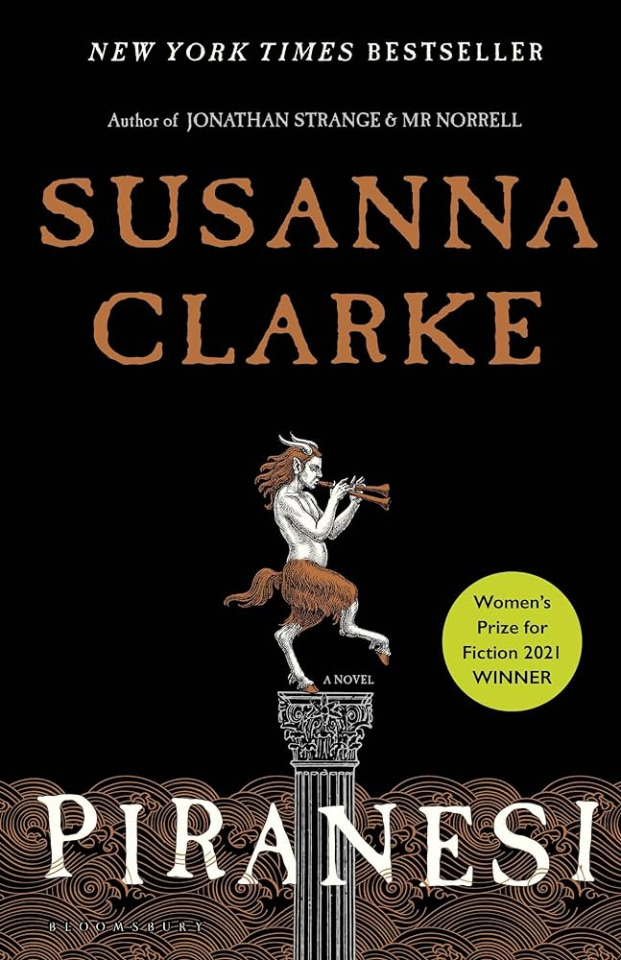
The first book I finished this year is one that I think about every day. Susanna Clarke’s Piranesi is a wonderful little novel about who we are at different times, and crucially different places, in our lives. It explores personhood through the lens of fundamental internal change; when we go through seismic changes, do we become different people or are we fundamentally the same?
Clarke uses magical realism and a meticulously well-designed alternate reality/dream world as a means of exploring the evolution of one’s own personhood, as well as an adoration of design, architecture, and place. Piranesi was invigorating for me as a reassurance that it’s okay to redefine oneself at different points in life, and that just because you’re a different person now, that doesn’t mean that the old you ceases to exist.
Feet of Clay by Terry Pratchett (1996)
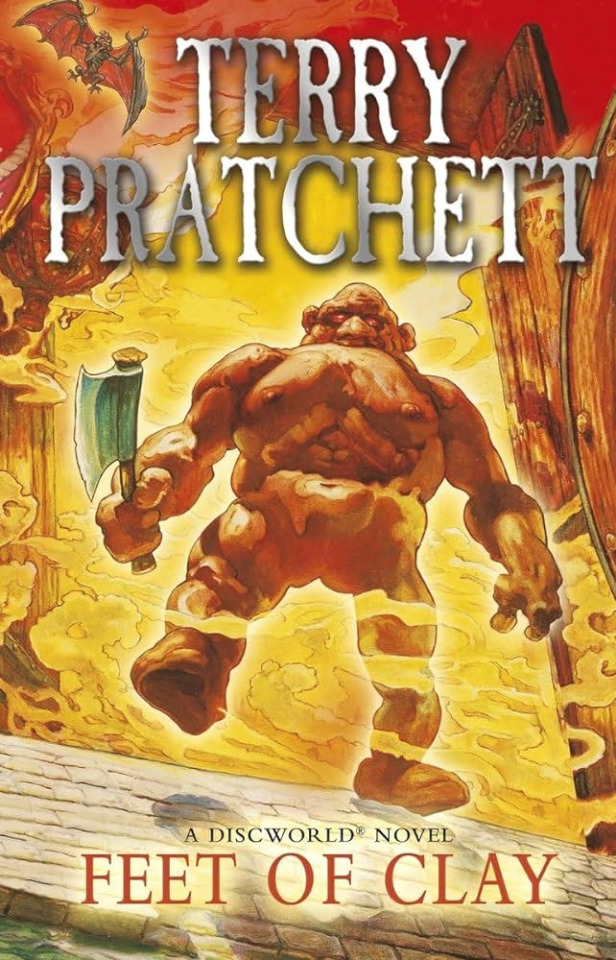
Terry Pratchett is so well known for being a satirist, that it’s east to forget how sincere and moving his work can be. After putting it off for many years, I finally started reading the Discworld books this year, and have been enjoying them immensely, and while I had a great time with the first two books in the City Watch sub-series, it wasn’t until the third entry that one of them really hit me, emotionally.
Feet of Clay is about golems (גּוֹלֶם). For those unfamiliar with Jewish folklore, golems are anthropomorphic clay constructs ordered to obey the commands of their master and animated via the inscription of the Hebrew word for truth on its head. Pratchett’s golems are slightly different in that they are brought to life by placing governing words inside their heads. Pratchett uses this to remarkable effect to build a story of self-ownership and self-determination. It was especially moving to me to see Jewishness used in this way – as something empowering rather than grotesque, which is a real rarity in Western fantasy writing.
A Closed and Common Orbit by Becky Chambers (2016)
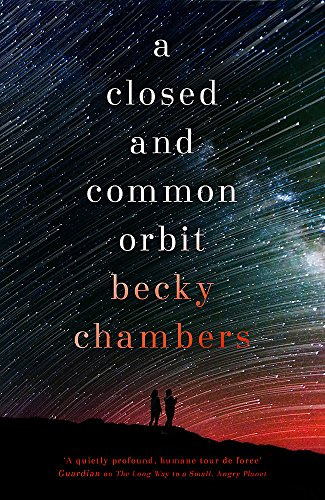
The last book I wanted to talk about here was this second entry in Becky Chambers’ beautifully humane, space opera anthology, The Wayfarers series. A Closed and Common Orbit centres on two protagonists, one an AI learning to adapt to a life passing as a human in an illegal ‘body kit’, and the other a clone, bred for factory work, trying to help the AI make a life for herself.
As with her first book, The Long Way to a Small Angry Planet, what characterises Chambers’ writing is her deep love for her characters, and the way that love manifests itself in this book is nothing short of miraculous. Sidra and Pepper’s parallel journeys are not merely about convincing others of their personhood, but rather convincing themselves. A Closed and Common Orbit is about finding a way of living where you feel most like yourself, learning to feel that you deserve for your needs to be met, and accepting that your loved ones see you as a person, even in times when you don’t.
All of these books have meant a great deal to me during a time where I have had to completely re-evaluate the ways in which I see myself. Genre fiction is not necessarily where I expected to find this feeling of personhood and recognition, but it’s especially exciting to have done so. There’s nothing quite like finding deep meaning in something you have engaged with purely for entertainment, and I hope to continue to do so as the year goes on.
#blusforjews#books#booklr#becky chambers#the long way to a small angry planet#wayfarer#nonbinary#getting back into reading#a closed and common orbit#terry pratchett#discworld#feet of clay#ankh morpork city watch#susanna clarke#piranesi#magical realism#fantasy#scifi#space opera#jewishness#jewish
5 notes
·
View notes
Text
On Epic Fantasy, Gender, Changes in Belief and Samantha Shannon’s The Priory of the Orange Tree
Ordinarily I don't write about books here, but I had something I wanted to get out about what I've been reading lately, so here goes...

I’ve always maintained that high fantasy is something in which I have very little interest. While friends and family have raved about Lord of the Rings and Game of Thrones over the years, I’ve felt a great disconnect from those stories and worlds, and I always assumed that it was the genre itself at the root of the problem. Meanwhile, I was raving separately about the immense creative achievement of The Matrix (all of them, not just the original film), which is (if I’m being honest with myself) high fantasy wearing the skin of science fiction. Chosen one narratives, prophecy, fantastical creatures, magic systems, and a great battle to determine the fate of humanity are the makeup of The Matrix, just as they would be any other work of high fantasy.
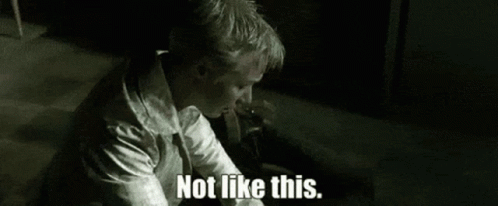
I learned the hard way during my undergraduate degree and subsequent three years as a post-graduate student that reading for pleasure can very easily fall by the wayside when you have to read so much for work – the act of reading itself becomes a massive chore. So, when I left academia and started getting back into reading for pleasure in a habitual way, part of the journey for me was discovering my taste in literature as an adult, which meant giving fantasy another try.
The discoveries I’ve made since getting back on the horse have been a mixed bag – some expected and some very much unexpected. Among those realisations was the fact that fantasy as a genre is not as immediately repulsive to me as I thought; what is repulsive to me, on vibes alone, is fantasy written by men. It turns out that my lifelong struggle with masculinity (I’ve only recently begun coming out to myself and others as non-binary - I use he/they pronouns) applies to literature, too. Surprise, surprise, The Matrix’s exploration of gender identity and transness was more relatable to me than the aggressive hyper-masculinity of Game of Thrones and to a lesser extent Lord of the Rings (yes I know the consensus is that LotR is very gay, but it’s also very male). So, while in search of something to read on my local library’s eBook lending service, I decided to give Samantha Shannon’s epic fantasy novel, The Priory of the Orange Tree, a shot, and I’m so very glad that I did.
TPotOT has been misleadingly described by some as ‘feminist Game of Thrones’. And, while I can see where those people are coming from, this work feels like its own entirely distinct thing. Rather than plunging into the darkest, grimmest depths of humanity’s worst moral failings, as George R.R. Martin does almost fetishistically, Shannon uses her beautifully engrossing fantasy world to explore the necessity of trust and cooperation with those whom one’s belief system might deem unacceptable, in order to confront something that threatens everybody. This is less an allegory for climate change, and more an allegory about dogma.
The world of this Roots of Chaos series is built upon a series of conflicting, yet paradoxically overlapping, paper-thin religious belief systems. These systems hold the societies of Shannon’s four, wonderfully drawn POV characters together, and what makes the narrative of this gargantuan book so captivating, is the necessity of these characters coming to terms with the elements of their belief systems that have been falsely constructed in order to serve an agenda. This isn’t a didactic story about one morality system being superior to another, but rather one of learning to find common ground with those who believe differently to you, accepting truths when you are confronted with them, and having enough faith in humanity to trust that society won’t collapse as a result.
The Priory of the Orange Tree isn’t the only book in this series (Shannon has since published a prequel entitled A Day of Fallen Night), but it does function as a standalone story with a definitive ending. That being said, Shannon smartly chooses to end her story at the conclusion of its central conflict – the battle with a terrifying, all-powerful dragon called The Nameless One – rather than spending extra time exploring the aftermath. We don’t know whether the colossal revelations poised to shatter this world’s religions will lead to societal collapse, or whether the characters’ faith in humanity is justified. Anyone who knows me is aware of how I feel about certainty in narrative storytelling. Asking questions is much more interesting than answering them.
Ultimately, The Priory of the Orange Tree is a story that leads (and ends) with its characters. The book is deeply concerned with the repercussions of its plot on its intricately detailed world, but it is more focused on the way these characters grow and change when confronted with undeniable truths. Eadaz uq-Nāra is up there with my very favourite protagonists, and her journey and relationships are rapturously entertaining and moving. Shannon clearly adores her characters, which makes it so very easy for us as readers to fall in love with them, too.
I’m so glad to have found this book. TPotOT, along with Becky Chambers’ miraculous space opera, The Long Way to a Small Angry Planet, have been genuine reassurances to me as I come to terms with who I am as an adult, both in my tastes as a reader, and more fundamentally in myself and my identity. In short: genre fiction written by queer women is good for you.
5 notes
·
View notes
Text
A Quick Note on 'Jewface', Maestro and Oppenheimer
Given that my presence on this platform is filtered specifically through the lens of Jewishness in film, and that I wrote my undergraduate dissertation on the Jewish identity of Leonard Bernstein – the subject of Bradley Cooper’s controversial upcoming film, Maestro – I thought I’d weigh in on the current discourse.
For those who are unaware, one of the biggest films due to premier as part of this year’s autumn film festival season is Bradley Cooper’s Maestro. The film is said to be a non-traditional biopic of 20th century American composer Leonard Bernstein, focusing largely on his complex relationship with his wife, Felicia Montealegre. Controversy has arisen around the Netflix production due to images from the trailer featuring Bradley Cooper as Bernstein wearing an enlarged prosthetic nose. Voices within and outside Jewish communities have loudly criticised Cooper for caricaturing Jewishness, using the term ‘Jewface’ which describes the act of a goyische (non-Jewish) actor using prosthetics to make themselves look more like a cartoonish, imagined Jew.
While it is true that Bernstein did own a decent sized schnoz, the prosthetic utilised by Cooper is significantly bigger, and more defined than the nose was in reality. From a personal standpoint, I do find the use of this prosthetic to be pretty discomforting, but I think it speaks more to Cooper’s insecurity about the size of his own nose, which is a lot bigger than perhaps he would like to admit (and not too dissimilar to Bernstein’s actual nose!), than it does about his perception of Jews. That being said whether it was his intention to cartoonify Jewishness or not, Cooper has ruffled feathers in a way that is crass rather than substantive. Bernstein’s living relatives have come out in support of Cooper and his decision to use the prosthetic, saying that Bernstein would not have minded, but I think their statement rather misses the point. The nose is not about Bernstein himself, but about highly visible representations of a tiny minority that are stereotypical and incredibly reductive.
Funnily enough, however, Cooper’s use of ‘Jewface’ is the element of Maestro that bothers me the least. I have been fairly vocal since the film’s announcement about how I believe the production as a whole to be a pretty catastrophically bad idea. Leonard Bernstein is my number one creative hero – as a composer, public intellectual and educator, I don’t think there has been a single Jewish figure in American history who has had more of a positive impact on culture.
As I mentioned, I have written extensively about Bernstein in an academic context, and in researching him, it became clear to me just how vitally important his Jewish identity was to him throughout his life. It informed his music (even West Side Story, which was initially conceived as a story about Jews and Catholics on the Lower East Side of Manhattan), and his role as an educator (he often described his pedagogy as rabbinic in nature), and he was deeply, foundationally affected upon learning about the realities of the Holocaust which caused what he described as ‘aporia’, a state of being where he was too overwhelmed to write a single word for years. Bernstein’s complicated relationship to sexuality was also hugely significant in his life. There is still debate to this day about whether, given an open, accepting environment, he would have identified as a gay man or as bisexual. He had significant, passionate relationships with both men and women, and was an early major advocate for HIV/AIDS research.
My problem with Maestro is that I don’t have faith in Bradley Cooper as a writer/director, to sensitively depict these two massive aspects of Bernstein’s identity. Focusing on his most significant straight-passing relationship as the centre of a film called Maestro does not inspire confidence that the film won’t totally whitewash Bernstein’s Jewishness, or reduce his sexuality to the pain it caused his wife (in a similar way to other reductive music biopics like Bohemian Rhapsody or Rocketman). Cooper’s own identity is significant in that he is starting from a place of remove from the identity of his subject, which isn’t necessarily a dealbreaker, but when there are other filmmakers out there who are far better suited to a project like this, both from an identity perspective and a thematic one, it’s hard to justify why this project exists at all in its current form.
Some have pointed to the involvement of Steven Spielberg as a producer on the project as hope for better representation, but given that Cooper and Martin Scorsese – a filmmaker who I have criticised in the past for the didactic, Christian morality of his movies – I don’t think it’ll make much difference. I’m more comforted by the involvement of Josh Singer (Spotlight, The Post) and his contribution to the screenplay, given his Jewishness and his work on thematically sensitive historical films.
I’m not writing off the film entirely just yet. I had similar worries about Oppenheimer, given the significance of the scientist’s Jewishness in his decision to start work on the bomb in the first place. Nolan and Cillian Murphy, thankfully, proved me wrong in the director’s decision to focus on the differing Jewish identities of Oppenheimer, Lewis Strauss, and I.I. Rabi, and the nuanced ways in which their characters were informed by Jewishness, as well as Murphy’s attention to detail in his performance. It’s certainly possible for non-Jewish filmmakers to consider Jewishness in a valuable way (see Todd Field’s Tar or Paul Thomas Anderson’s Licorice Pizza for a couple of recent examples), but the set-up of this project makes it hard for me to believe that Cooper is one such filmmaker.
To end with a little self-gratifying what-if, I thought I’d lay out what would be my ideal Bernstein biopic: a film centred around the relationship between Bernstein and his fellow queer, Jewish composer and mentor, Aaron Copland, the letters they wrote to one another, and the fallout of their brushes with McCarthyism which had vastly different outcomes. I would keep Cooper as Bernstein (without the prosthetics!) because he can convincingly play the man’s charm, I’d cast Michael Stuhlbarg as Copland, and get Todd Haynes to write and direct. Haynes is Jewish, gay, and has a great deal of experience directing sweeping, romantic, dark, and political films. He knows how to portray music on screen and has several masterful period-pieces under his belt, with Carol in particular as a shining example of complex, historical queer romance in America. Honestly, this would be my dream film project.
#blu ray#blu ray collector#blusforjews#cinema#cinephile#film#film tumblr#jewishness#jewishness in film#maestro#leonard bernstein#bradley cooper#jewface#antisemitism#oppenheimer#christopher nolan#todd haynes#michael stuhlbarg#aaron copland#biopic#music biopic#queerness#queer history#gay#bisexuality#lgbt representation
52 notes
·
View notes
Text
Spotlight: My Weirdest Comfort Film
As of a few days ago, Tom McCarthy's best picture winning film, Spotlight (2015), became my most-watched film on Letterboxd. On its surface, the investigative journalism drama is a dour story based on the real investigation which exposed the horrific, systemic paedophilia within the Catholic church. This shouldn't be such a comforting watch, given its subject matter, so here I intend to determine what it is about this movie that keeps reeling me back in... or maybe there's just something wrong with me.
Let's start with the elephant in the room: am I just really odd? Honestly, probably, but I don't think that's why I keep coming back to Spotlight. While the film is mindful of the crimes being investigated, and particularly sensitive and alert to the pain and extreme trauma experienced by the victims, it's primary focus isn't on the scandal itself - it's very necessarily not torture porn. If I wanted to torture myself via repeated exposure to the pain of others, this wouldn't be the film to achieve that.
Instead, the focus of Spotlight is on the process of uncovering the Chruch's crimes, and the systemic issues that kept such an open secret covered up for so long. In other words, this is a film about people who are really good at their jobs, deconstructing all the ways the church in environments like Boston has its claws in every major institution, including the press.
For a long time, I wanted to be an investigative journalist. The idealism that drives exposing difficult truths in order to ensure that the electorate be informed, is an incredibly compelling reason for pursuing a career. Now that I'm older and I know that the demands of such a profession are not for me, my love of proper, idealistic journalism is channelled into films about the people who can hack it. Think Broadcast News, The Post, The Insider, Goodnight and Good Luck, and Zodiac; I'm even one of those sickos who loved The Newsroom.

I really do believe in the power and responsibility of the so-called Fourth Estate. So, one of the most compelling things about Spotlight is that it is a true story - a period piece even - about a time when the press served their intended function properly and really made a difference. A story about that kind of thing set today would almost feel like science fiction.
Tom McCarthy's filmmaking, which some have dismissed as bland or overly procedural, is genuinely inspired because of the reality it is showing. The aesthetic and tone of Spotlight is intentionally mundane and perfunctory, portraying a job that needs to be done well, but not one that needs glorifying or mythologising. The one member of the Spotlight team (Mark Ruffalo's Mike Rezendes) who is more theatrical and performative is chastised by his colleagues for his over-the-topness - it's very telling that he is the one who ends up writing the article.
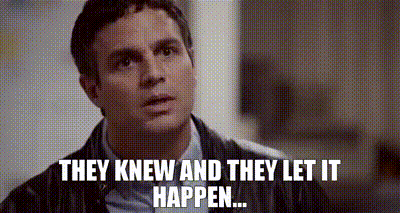
I am especially drawn to the ostensible B-plot of the film: Liev Schreiber's Marty Baron stepping in as the new editor of the Boston Globe and having to contend with the extent of the Catholic church's influence of Boston life. Baron is Jewish, and immediately identified as an outsider in the majority Catholic city. His performance is, in my view, miraculous in the way it so accurately communicates the ways in which Jews in majority Christian environments have to restrain our frustration with a cultural majority that so consistently dehumanises and others us.

One scene in particular is often reason enough for me to revisit Spotlight. It involves Baron being called in for a meeting with Cardinal Law (the most senior figure at the time in the Boston archdiocese). Schreiber deftly communicates Baron's skillfully maintained composure and professionalism despite his clear discomfort at Law's blatant attempts to both bring him under the church's sketchy umbrella of influence and prostelytise at him. It is a frightening reminder of how deeply embedded Christianity is in Western institutions, and of how difficult it is to exist as a non-christian in those environments. Spotlight does not exonerate lapsed, cultural or non-practicing Catholics, but exposes how every day people will look the other way when their own community and institutions are implicated in something horrible. Like I said, science fiction.
Despite being based on a true story, Spotlight is a brilliantly crafted wish-fulfillment fantasy about a time when the press served its function and held vile, corrupt institutions to account. It's tempting to look back on its Best Picture win at the Oscars as a mistake, especially given how totemic Mad Max: Fury Road is as the last bastion of visually inventive, gonzo blockbuster filmmaking, but I really do believe that Spotlight's win was both deserved and has stood the test of time as a reminder of how we should act in the face of the systemic nightmares of our society. Every time I'm in a place of extreme pessimism about the state of the world, this film is warm, if strange, comfort blanket.
38 notes
·
View notes
Text
This is from my new, film focused, tumblr. I wanted somewhere to put my self-indulgent film writing that isn't as toxic and bro-y as filmstagram. If you've enjoyed my movie ramblings here, do check it out!
The Letterboxd Phenomenon and My Four Favourites
Like many a young film lover over the last few years, Letterboxd (a film focused social media app) has been key in helping me to build my relationship with movies.
As someone who has been obsessively and compulsively making lists for most of my life (I recently found an old notebook from my teenage years full of lists ranking everything from actors to T.V. episodes to musicians - yes, I am autistic...), Letterboxd has been incredibly helpful in keeping track of my growth and change as a film watcher since I joined the service in 2017.
Back when I first joined, Letterboxd felt like this secret club where only the most pitiful little film gremlins would congregate to list and tabulate their movie experiences. In recent years, that pool of users has expanded massively into a lively, vibrant media environment, plagued with some (if not all) of the same problems as film twitter. It's quieter, though, a space that still provides users a freedom to use its features however they please.

Like I said before, I love lists. My Letterboxd is a super convenient container for all the granular ways in which I like to sort and organise the films I love. If you're interested, my Letterboxd is here.
My Four Favourites
One of the most exciting and fraught features on Letterboxd is the Four Favourites that adorn the top of every user's profile. Everyone has a different approach to filling out these four coveted slots - I regularly change mine, often to fit some sort of theme - but I thought I'd take this opportunity to talk about the films which come closest to being my actual four favourites.
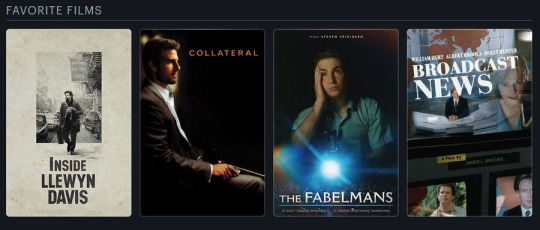
Inside Llewyn Davis (2013) dir. Joel and Ethan Coen
My favourite film of all time is the gloomy odyssey of New York folk musician, Llewyn Davis, directed by the ever brilliant Jewish brothers, Joel and Ethan Coen.
I talk about the Coens a lot as filmmakers whose work is quintessentially Jewish across their entire filmography. Most people understandably point to A Serious Man as the clearest example of Jewishness in their work (one of the only films in which Jewishness is explicitly part of the text). That being said, however, a broad attitude of posing moral and existential questions without attempting to provide answers is present in all of their work. This attitude is a fundamentally Jewish approach to life's mysteries, and in the work of the Coens, is often misidentified as nihilism.
Inside Llewyn Davis, aside from being one of the most beautifully shot, written and acted films I've ever seen, with an all-time great folk soundtrack, is a film that asks terrifying existential questions:
Is it possible to make authentic art in a commercial world?
Is it possible to be a better person when everyone keeps telling you how awful you are?
Is it possible to escape this cycle I've trapped myself in?
No answers. Just questions. Live with it.
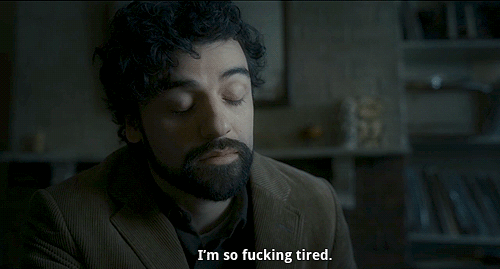
Collateral (2004) dir. Michael Mann
Michael Mann is a director that not a lot of people know is Jewish. You wouldn't think it looking at his movies, but if you pay attention to how he ends nearly all of his stories, the same uncertainty principle which fuels the Coen brothers seems to haunt Mann, too. Nearly all of his films end with a man, who has just done something to irrevocably change his world, walking off into the distance, leaving only a question: where the hell do I go from here?
Collateral is in many ways typical of what Michael Mann does. Two men, at odds with one another, wreak havok trying to overcome each other in an environment defined by a dramatically heightened level of realism. What sets this film apart from the rest of Mann's oevre is the way its protagonist, Max (Jamie Foxx), has to adopt the persona of the antagonist, Vincent (Tom Cruise giving his very best performance), in order to escape his situation. Collateral is a film about understanding the philosophy of your enemy and determining how much of it is bullshit.
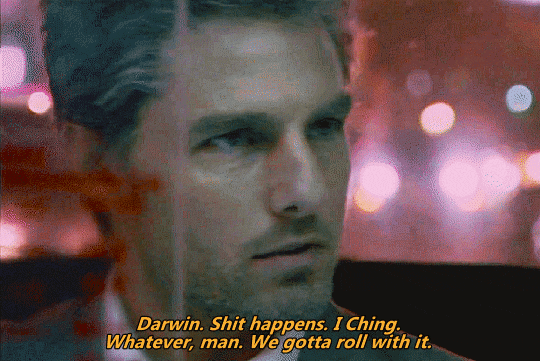
The Fabelmans (2022) dir. Steven Spielberg
I know it's cliche to say so, but Steven Spielberg is far and away my favourite director of all time. What is more controversial about my love for the guy is that I don't think he has a single low period in his career. I am a particular defender of his 21st century output - Catch Me If You Can, Lincoln, Bridge of Spies, The Post and West Side Story are all masterpieces in my book - and I really do feel that The Fabelmans is the pinnacle of his entire filmography.
A film which many have mistaken as overly soppy and sentimental, is actually a tangle of Freudian trauma and pessimism about the relationship between art and identity. The Fabelmans presents Spielberg's incredibly dark and complicated relationship with his family, his own Jewishness and his use of his talents as a filmmaker to reckon with those things. He weaponises his signiture warm, glowing, nostalgic side to frame more upsettingly the most upsetting parts of his upbringing. For Spielberg, cinema is a coping mechanism that has ripped his personal life apart, and it's truly remarkable that he is self-aware enough to admit that in front of the world.

Broadcast News (1987) dir. James L. Brooks
James L. Brooks doesn't have the best track record as a director, but when you make something like Broadcast News, it doesn't really matter what you do next because unless you're some kind of miracle worker, there's no way to top something this good.
Stories about journalists are like crack to me. I'm one of those weirdos who unironically loves Sorkin's The Newsroom; Spotlight is a comfort movie for me! Any story featuring journalists who are really great at their jobs, waxing poetic about the fourth estate, is going to work wonders for me. Add to that one of the best romantic dramedy dynamics in cinema history, and you have a recipe for the perfect Dan movie.
One of the most miraculous things about Broadcast News is the trio of performers at its centre, particularly Holly Hunter, who for my money is maybe the greatest ever living screen actor. The way she plays the burden of intelligence in conflict with a desire for connection is almost upsettingly brilliant, especially given the fact that this was her first big starring role. I really do believe that Brooks' screenplay for this film is one of the best ever written, with some of the most unflinchingly real, but still delightfully funny characters put to screen.

So, there we are. I guess you could see this as a 'four movies to get to know me' kind of thing. Coincidentally (or not, who can say), all four of these films are by Jewish directors, and all four of them feel distinctly Jewish to me in the ways they approach their themes and ideas. Beyond that, though, these are all films that make me feel a deep connection to their characters and the worlds they imagine.
What are your Four Favourites, and what do they say about you?
4 notes
·
View notes
Photo


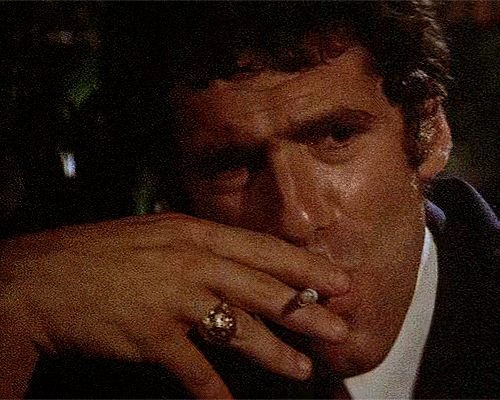


Elliott Gould as Philip Marlowe in The Long Goodbye (1973) dir. by Robert Altman
936 notes
·
View notes
Text
People will literally see a sage green building and be like "what if it was white" 🙄
114K notes
·
View notes
Text
Pinning Down My Kind of Movie (2 Years Later)
A couple of years back, I poted a hastily penned listicle talking about my burgeoning love of auteur-driven cinema, gushing about some of my favourite directors and the positive impact of blu-ray collecting on my film journey.
Well, two years and 300-odd blu-rays later, I'm back to gush some more about the directors whose work has kept me going through years plagued by the novel coronavirus, horrific political developments, and a long overdue depression diagnosis. I should also mention that my incredible partner has stuck with me through all of this bullshit, including my gluttenous accumulation of films which take up valuable shelf space in our home.
Now, the following filmmakers have not taken the place of the likes of Spielberg, Mann, the Coens, Bigelow and Soderbergh (all of whom have continued to grown in my estimations - I mean, have you seen WEST SIDE STORY [2021]????), but have rather joined their ranks and made me more appreciative of the form to which they've all contributed massively.
Jane Campion
I think it's fair to say that most people's first experience with New Zealand auteur, Jane Campion, is her 1993 Oscar winning masterpiece, THE PIANO. Not me though. I kinda stumbled on Jane Campion in perhaps the most backwards way possible by randomly hitting play on her 2003 box office flop, IN THE CUT. If you've not seen it, IN THE CUT is an incredibly explicit and violent erotic thriller unexpectedly starring romcom darling, Meg Ryan, and Mark Ruffalo. It was maligned by critics and audiences on its release for its pulpy plotline and intense, alienating sexuality. Over the years, however, it has won over many a discering viewer with its powerful themes of the way male violence is a constant threat to female autonomy, the complex realities of sisterhood, and the myriad abuses of police power.
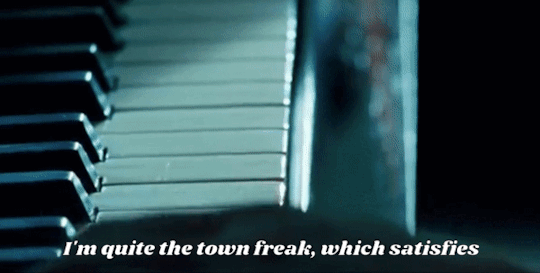
I was both horrified and mesmerised by IN THE CUT, and have since completely fallen for Campion and her worldview, particularly in films like THE PIANO, THE POWER OF THE DOG, and BRIGHT STAR. She has such a powerful understanding of how to bring out actors' abilities through unconventional casting and genius screenwriting. Everything she makes is fascinating even when it doesn't quite connect and I adore her for it.
Olivier Assayas
I initially discovered Assayas quite some time ago through his occult thriller, PERSONAL SHOPPER, largely because I was intrigued by the idea of an arthouse Kristen Stewart vehicle. It took me a few years to dig deeper into the filmmaker behind it - firstly, because I was a little mystified by the movie, but also because the concept of a director and their role took a while to connect with me. I revisted PERSONAL SHOPPER some years later and was completely fascinated by it, leading me shortly after to check out Assayas' 2015 work of geniues, CLOUDS OF SILS MARIA. The Juliette Binoche/Kristen Stewart two-hander generational drama was one of the most exciting pieces of modern filmmaking I'd seen up until that point, and really opened a door for me to explore non-English language filmmaking.

Assayas has a fascination with the interplay between adjacent generations, which he explores so perfectly in CLOUDS OF SILS MARIA and his earlier work, COLD WATER, with such a heartbreaking intensity. The way that older generations inflict untold damage on those who come after them, and the subsequent return fire from younger folks is depicted with singular accuracy and vitriol from the French auteur, and with consistently beautiful cinematography to boot.
Paul Thomas Anderson
PTA is definitely the most film-bro cliche filmmaker on this list, but he's brilliant so fuck it!
I've told this story to friends with any sort of interest in film a million times, but in early 2019 I watched my first PTA film, THE MASTER (2012). It's not an exaggeration in the slightest when I say that I have thought about that film every day since. THE MASTER has haunted me now for three and a half years straight and it took me until early this year before I was able to claim with any honesty that I understand it.

Now I've seen all of his films (except HARD EIGHT which is pretty impossible to get hold of in the UK), I can with some confidence say that while his films are all at least somewhat intentionally enigmatic, there's a realy heart-on-sleeve emotionality to all of them which each connect in very specific ways. PTA's films are often popularised for their stunning cinematography, off-beat humour and the powerhouse performances he has been able to draw out of the likes of Philip Seymour Hoffman, Daniel Day-Lewis and Adam Sandler, but its that emotional specificity that keeps me coming back to his films over and over again.
Robert Altman
Weirdly enough, this next filmmaker is often cited as one of PTA's biggest influences. Robert Altman had one of the all-time great runs in the 70s, releasing brilliant film after brilliant film, almost yearly, for a full decade. During the early weeks and months of the pandemic, I watched as many of those 70s movies as were available to me, much to the chagrin of my then housemate who couldn't for the life of him understand why I liked them. To be honest, I'm not sure I could have told him at the time. It's only been since spending the second lockdown living by myself that I have been able to nail down what Altman's films mean to me.
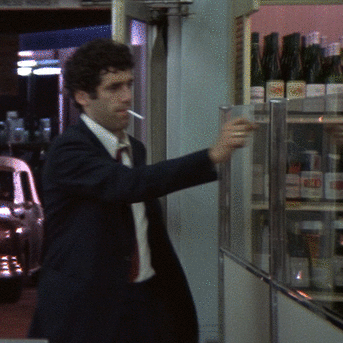
There's a particular subversiveness to that run of 70s movies that really speaks to me (especially in the wake of the 2020 presidential election) wherein Altman spent so many years interrogating the American psyche in a way that, despite his Goyishness, feels very Jewish to me. Altman's filmmaking style was very tapestry-esque and famous for its overlapping dialogue. In his more satyrical works, no norm or institution was safe from his deep, cynical questioning. My favourite work of his is his 1973 neo-noir, THE LONG GOODBYE, which fundamentally challenged every notion of its own genre that it was lambasted by critics at the time. Thankfully, it has rightly accumulated a cult following over the years for everything it did to push neo-noir filmmaking forward, and for Elliott Gould's iconic performance - to date one of the hottest performances given by a Jew in Hollywood.
Nora Ephron
Speaking of Jews in Hollywood, Nora Ephron is one of the most iconic Jewish voices of the last 50 years and her impact on Hollywood storytelling is incalculable. I fell so hard for Nora's writing for WHEN HARRY MET SALLY... and her directing in SLEEPLESS IN SEATTLE, YOU'VE GOT MAIL and JULIE & JULIA that my partner and I named our cat after her (that Nora has much less of a grasp on social etiquette than the late Ms. Ephron).
Ephron had a particular affinity for the very specific assimilated Jewishness of late 20th century New York, so as someone with a real obsession with New York and its Jewishness, I was immediately drawn to her incredibly specific depictions of the city and the culture of its (admittidly wealthier) areas. When I travelled to NYC as part of my PhD research, I made it a priority to visit as many of the iconic locations from WHEN HARRY MET SALLY... as possible; sadly, Katz's Deli is not all the movie promises it to be.

Nora's acerbic whit and wonderous sentimentality defined the American romcom for a short, utopian period of blockbuster filmmaking, and I will forever mourn that both she and her singular voice were taken from us too soon. May her memory be a blessing.
Bong Joon-ho
Aside from BARKING DOGS NEVER BITE, which I still haven't seen because I've heard it's not that great, Korean auteur, Bong Joon-ho has one of the most consistently brilliant filmographies of any working director to emerge in the 21st century. Obviously, PARASITE winning best picture just before the pandemic hit in early 2020 was one of the last great euphoric moments in popular culture before the world collapsed, and like many, that film's success prompted me to go and explore the rest of Bong's work.
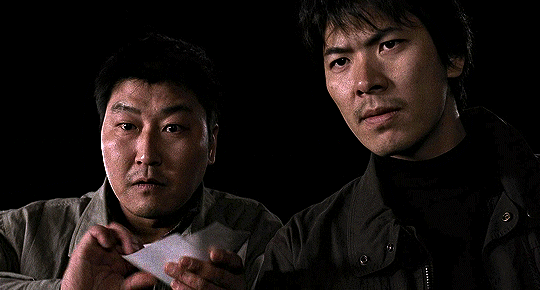
I had seen SNOWPIERCER back when it came out in the UK in 2014 (largely because I knew it was based on a comic book... *sigh*), but it wasn't until I revisited it along with the rest of Bong's films that I connected the dots of the themes he forces you to confront in all his films: a hatred of capitalism, powerful unchecked institutions and climate change. Bong isn't subtle about his thematic concerns but he's so brilliantly creative about the ways in which he incorporates them into his stories that the didacticism has never bothered me. Beyond that, Bong has a seemingly impossible degree of control over tone in his films. He blends abject bleakness, seething rage and a hysterical comedic sensibility with an apparent ease which leaves me utterly perplexed and in awe after every viewing of one of his films. If you've never seen MEMORIES OF MURDER, you haven't lived.
So...
I was somewhat tempted to write about my guy Rian Johnson here, too, but I figured that was asking for trouble. If I'm asking for trouble then that deserves its own piece so maybe I'll write about him separately some other time.
In any case, these are some of the creative voices that have really shaped my worldview and my tastes over the last couple of years. If this was of any interest to you please let me know! I'm desperate for validation from other people who love film - it makes me feel seen. I'm sure I'll end up getting bored and restless and writing another one of these before long.
#film#jewish film#directors#auteurs#jane campion#the piano#in the cut#olivier assayas#personal shopper#kristen stewart#clouds of sils maria#paul thomas anderson#pta#punch drunk love#the master#adam sandler#robert altman#the long goodbye#70s movies#elliott gould#Nora Ephron#when harry met sally#sleepless in seattle#bong joon ho#parasite#memories of murder#snowpiercer
9 notes
·
View notes
Text
Old | Why M. Night’s latest has provoked so much vitriol
Let me begin by saying that I loved Old, and I strongly believe that a world in which M. Night Shyamalan gets to make whatever the hell he likes with little to no oversight is a world worth living in. M. Night’s films are always polarising. For every rave review there’s a scathing critique, whether it’s over an issue of perceived quality or just a distaste for the director himself and his narcissism, so I was expecting similarly varied responses to his latest feature. That being said, I was pretty shocked by the actual content of the takes filmgoers have been posting on social media and platforms like YouTube and felt the need to think about them more deeply.
So many of the anti-Old posts and videos that I’ve seen follow similar patterns. There’ll be jokes about how M. Night has seemingly never had a conversation with a human being, and there’ll be a comment about how the ending wasn’t hugely satisfying – all fair critiques. What I found bizarre were the number of people who said something along the lines of “It’s a terrible movie. I had so much fun watching it, but not in a ‘so bad it’s good’ kind of way.”
Okay… So, if it’s terrible, but not ‘so bad it’s good’, then how could you have had fun watching it?
It’s hard to put a finger on precisely, but I have an idea as to why this phenomenon is so specifically applicable to M. Night Shyamalan and his films.
It all comes down to a few things. Firstly, what is it that filmgoers associate with quality in film, and particularly in horror/chiller filmmaking? It has become pretty clear to me, that what people seem to want the most is a film that hinges entirely on a plot without holes, and whether the plot conforms to their expectations. A lot of modern, so-called ‘prestige’ horror is less about plot and more about theme and allegory. For M. Night in particular, his filmmaking tends to be motivated by whatever real-life stress or emotion he’s dealing with at the time. In the case of Old, the film is centred around the parental horror of feeling as if your child is growing up too fast. It’s not important to him that the plot is 100% unimpeachable, but rather that he communicates as effectively as possible, whatever it is he wants you to feel.
Shyamalan is particularly technically gifted as a filmmaker, specifically in the realm of portraying tension on screen. Old is so well shot, edited and the tension is so well rendered on screen that it makes it difficult to be unengaged or bored during its runtime. This is why people have fun with his films, but an over-emphasised focus on plot, and dialogue that advances the plot gracefully, will dictate whether someone is willing to classify them as good or bad.
It doesn’t help either that M. Night is a name so heavily associated with twist endings. The director has unfortunately bought into his own mythology and so whether his endings are effectively twisty or otherwise, they are always built up as if there is going to be a huge reveal. This, to me, is why someone like Christopher Nolan can get away with clunky dialogue in his films, but M. Night can’t. Shyamalan’s reputation is so heavily built around the endings to his films that the judgement of filmgoers starts with the ending and works backwards through the film, looking for flaws on the basis of whether or not the ending lived up to expectations. People overlook the clunky dialogue in Unbreakable and The Sixth Sensebecause the twist endings are so impactful, but they won’t do so for Glass(which I also love) and Old because the twist endings are less about changing the way you look at the plot of the film you just saw, and more about hammering home whatever thematic idea the director has been emotionally occupied with as of late.
Old’s ending is jarring and disjointed, but it doesn’t take away from the delicious tension and heart-on-its-sleeve emotional delivery of the rest of the film. The dialogue may be clunky, but the actors deliver it with so much authenticity and commitment that it’s not a problem for the film at large. The horror of Old is existential and searching for plot contrivances is going to make it harder to feel. That being said, the complaint that filmmakers should work harder to avoid distracting plot discrepancies in order to keep viewers focused on what matters is a legitimate one. If you hate Old for these reasons, I am not and will not judge you for it, but I’m always going to cheer on filmmakers like M. Night when they make crazy movies like this that aren’t so concerned with having an air-tight plot. It frees them up to focus solely on expressing themselves in the most personal way possible.
29 notes
·
View notes
Text
if little shop of horrors came out today yall would be so horny for the plant. yall would ship it with the twinky little main dude and there’d be discourse over whether it was better to humanise the plant or not. there’d be humanised fanart of it as a skinny white dude in a green suit. i know yall too well and i know you can’t be trusted with the responsibility
51K notes
·
View notes
Text
Jacob Collier – ‘Djesse Vol. 3’ | Put it away man! This is just embarrassing…

I’ve been a close, if sceptical, follower of Jacob Collier’s for quite some time. Like much of the online music literati (lol), I was once in total awe of the young prodigy, but over the last few years I’ve grown more and more frustrated with the direction in which his career has gone. Having seen the guy live on four occasions (god knows why I kept going), I’ve watched his slow descent into total narcissism. Now, upon the third full length album release of his four-part Djesse project, it seems clear to me that Collier is beyond saving from his own self-indulgence. In fact, with every new social media post, YouTube video, live performance and interview, it has become increasingly apparent that if he ever watched Jurassic Park as a child, Collier must have looked at the competing world views of Jeff Goldblum and Richard Attenborough’s characters and thought “Who is this man trying to limit Richard’s creative genius with all his talk of chaos and self-control?”. Collier has spared no expense putting together his latest record, but it seems he was so preoccupied with whether or not he could that he didn’t stop to think if he should.
The trouble begins very early on in Djesse Vol. 3. The first full length song, ‘Count the People’, is a mess of confused ideas, and attention seeking, unpolished rapping from a privileged, North London white boy clearly pandering to a pop music audience that, in all likelihood, will find him as irritating and disingenuous as I do. It’s not necessarily that he’s white, or wealthy that causes me to point out his rapping as messy and insincere, but more the hollowness of the lyrics, strung together only in pursuit of proving that he can rap really quickly to an unconventional rhythmic pattern. To make things worse, the track follows Collier’s word vomit with his attempt at a club anthem, intercut with fragments of totally incongruent musical ideas from EDM screams to a horrifically immersion-breaking banjo run of all things.
youtube
Now, there’s nothing wrong at all with eclecticism and freneticism in music if it’s employed thoughtfully and with any semblance of self-control, but Collier seems to just throw anything and everything into his famously massive logic sessions with total careless abandon. ‘Count the People’ is definitely the most offensive example of the polymath’s chuck-it-all-in creative approach, but this process is obnoxiously present in every track on the album. The internet’s great jazz saviour seems pathologically unable to handle the smallest moment of silence. Every slight lull in energy is filled with some shouted interjection, showy bass lick or sampled reference to a moment on a previous album.
Even the tracks that are somewhat compelling suffer at the hands of Collier’s manic personality. Daniel Caesar’s beautifully silky guest vocals on ‘Time Alone With You’ are constantly interrupted by frenzied interjections from Collier in the form of pitched up vocal tics and a frequently inserted chord sequence that the multi-instrumentalist seems to be trying to coin as a signature move. ‘All I Need’ also suffers from this problem, plagued by horrible, popping mouth noises, cringy shouts of “Ohhhh” from Collier at the start of each chorus, and horrific autotuned runs from Ty Dolla $ign. On many occasions, Collier’s need to include every miraculous idea that pops into his head will serve to disrupt a gorgeous vocal feature from the likes of Caesar, Mahalia or Tori Kelly.
There are occasional bright spots on Djesse Vol. 3, namely the serene ‘In Too Deep (feat. Kiana Ledé)’, which succeeds because it strips back all of Collier’s mania in favour of something simpler and more focused. The album’s closing track also has this effect, with a clear goal of bringing the record to a quiet, contemplative conclusion. Unfortunately, these rare moments of planning and forethought are overpowered by a creative impulse to include every little idea lest it disappear into the ether.
I had a conversation with a friend not so long ago about Jacob Collier’s career trajectory and where we wished he had taken it. His recorded output is clear evidence of what he does well, what his limitations are, and what his value is as an influential figure in contemporary music making. I almost wish that Collier had gone into academia, developing new theories in experimental harmony, production techniques and developing new technological concepts like his harmonizer which he uses in live performance. In becoming a major presence in recorded jazz-adjacent popular music and internet music culture, his value is in his fandom and said fandom’s renewed interest in music theory. The art that he has produced, culminating in this bloated Djesse project lacks a clear vision, oversight, genuine collaboration or substance. Jacob Collier is an intriguing phenomenon, but I fear that his well of artistic value has just about run dry.
9 notes
·
View notes
Text
I’m sure someone made a post like this before, but I’m not going to check. There’s no faster way to piss me off than to say that Superman is a Jesus allegory, because he absolutely isn’t. The character of Superman was created by two Jewish men, Jerry Siegel and Joe Shuster. He was inspired by the story of Moses, a Jewish story, and the creators made him to reflect their experiences as Jews living in America.
There are obvious Moses parts to his story, being sent away from his family as a baby in a basket escape pod to survive, and raised by people who weren’t his own, and then began to fully accept and be proud of his true heritage later in life and become a hero to all.
The parts of his story that aren’t Moses are just other Jewish experiences. Sacred homeland being destroyed, wandering around but never truly belonging anywhere, having to change his name from Kal-El (a Hebrew name) to Clark so he can blend in and be safe, being less visibly alien than some of his friends (like Martian Manhunter) but still constantly reminded just how different he is from others, and how society’s opinion on him and his people seems to change day to day, one day he’s a hero to all, the next he’s a dangerous alien who’s a threat to the real people. He is very clearly a Jewish character.
There is absolutely nothing about him even close to Jesus. Superpowers? Jesus doesn’t have laser eyes. If anything, the closest Bible superhero is Samson, but nobody makes that comparison, because that’s stupid. Being nice? I can list several nice Torah figures, including Moses. Why is it that every time someone is just a decent person, Christians jump to call that guy a Jesus metaphor? Do you guys only have one good person in your entire book? The death and rebirth themes that are so crucial to Christianity? Superman has none. Sure, he’s died and come back, but so has almost every comic book character, it’s pretty much inevitable. Nobody’s labeling Jason Todd as Jesus.
Yes, some writers and directors have tried to make Clark Kent be a metaphor for Jesus, but they are wrong, and misrepresenting the character. I doubt anyone would ever call the Zack Snyder Superman movies a perfect adaptation of the character. When you ignore a fundamental aspect of Superman’s character, when you erase an important part of his identity, you lose what makes him him. Superman is not, and will never be, Jesus.
2K notes
·
View notes
Text
Pinning Down My Kind of Movie
Warning: Wanky, self-indulgent ramblings about Hollywood auteurs to follow
A couple of days ago, I sat down with my housemate to watch Miami Vice (2006) directed by Michael Mann (Heat, Collateral) and starring Colin Farrell and Jamie Foxx. Since we moved into our place, my housemate has gradually been exposed to my taste in movies, and the other day, sat in front of a strung-out Colin Farrell ordering mojitos to ‘Numb/Encore’ during an undercover sting, he finally confronted me with a crisis-inducing statement: “You know, I can’t figure out what your kind of movie is.”
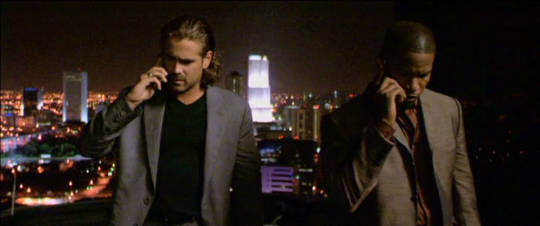
If I am to be totally honest, it doesn’t take much to send me into an existential tailspin, but this observation got me thinking enough to want to sit down and write about it, so here we are. My name’s Daniel and I love movies! When I was a teenager, I was certain I wanted to be a film critic, so I started writing in earnest. The problem was I wasn’t that well rounded as a viewer. I confined myself to the world of comic book movies and Disney animation. I turned my nose up at pretty much everything else before realising that I didn’t actually know much or have much to offer about film. Instead, I turned to music criticism because that’s where my knowledge base is.
That being said, I still loved movies, and as the years have gone on, I have been rapidly expanding my film knowledge and broadened my horizons extensively. I got called a “film buff” for the first time recently, which really shocked me. I still don’t feel well-watched enough, or knowledgeable enough to fit a moniker like that. Maybe it’s imposter syndrome, but I really feel like I have a way to go yet.
My Letterboxd bio includes the phrase “admirer of film nerds”, and I think that admiration informs the entire way I look at the world of film. I read a lot of reviews and listen to a lot of podcasts by smart, unpretentious film obsessives like David Sims, Griffin Newman, Katey Rich, Karen Han and Bilge Ebiri, but that same admiration also informs the kind of films I enjoy the most. In confronting the statement from my housemate, I realised that while there are some genres I gravitate to more than others, my taste in movies is largely defined by the extent to which I can pick up on a single authorial voice driving the film. A director, writer, actor, composer or cinematographer who has a real, obsessive love for their craft whose influence and personality can be felt in every layer of a film’s construction. Franchises are a different beast, but it’s usually the entries in a franchise that feel like passion projects for individual filmmakers that I love the most, which is why Iron Man 3 is by far my favourite Marvel movie.

Over the last few months I’ve started building a fairly extensive Blu-Ray collection. I love physical media because I like to have a tangible representation of the art I love, but it also allows me to physically organise my thoughts about film rather than moving things around on a spreadsheet or in my head. It has also had an effect on how I watch films. Spending money on a film makes me feel more obligated to watch it through to the end in one sitting, to not be on my phone at the same time and to pay closer attention. It’s also made my approach to picking the films I watch more considered. I’ve been hunting down the films I haven’t seen by directors I love, fuelled by newfound completionism, and I’ve been subconsciously prioritising this kind of auteur-driven mindset in a way that has revealed, over time, who my favourite filmmakers are.
So, with that in mind, let’s transform this meandering, self-indulgent think piece into a meandering, self-indulgent listicle. Here are the filmmakers that have changed the way I watch movies:
Christopher Nolan
I know this is a bit of a film bro cliché, but I promise I’m not one of those film school douchebags who’s convinced they’re going to be the next great big budget auteur. Like a lot of other people my age, I discovered Christopher Nolan through the batman movies. I was taken to see The Dark Knight by my parents when I was 10 years old, not having seen Batman Begins, and it blew my mind. For years after that, I was one of those arseholes who had a terrible Joker impression that I whipped out at parties, until I became aware of the cliché and never did it again.
In the years since I’ve watched all of his other movies and gained a new love of Interstellar and The Prestige – movies that taught me a lot about the authorial voice and interweaving a central theme into every element of a film. I also learned that just because I find it annoying when the same tropes turn up in every Quentin Tarantino movie, recurring tropes throughout a filmmaker’s catalogue aren’t universally a bad thing.
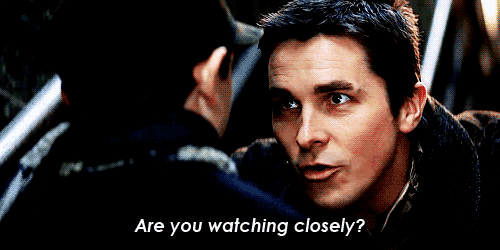
The Coen Brothers
Representation is important. The tough thing about watching films from an auteur-driven perspective is that so many of the most important filmmakers in Hollywood are approaching their films from a white, Christian, male perspective. Scorsese is a particularly difficult director for me to appreciate because so many of his films are overtly informed by his Christianity. My Jewish identity is the most significant aspect of my identity, so naturally I’m always looking for films made from a Jewish perspective, overt or otherwise.
Whilst the Coen brothers don’t always make movies about explicitly Jewish characters or subject matters, their Jewishness always comes out in their writing, particularly in the totally undidactic way they approach the subject of faith in almost every film they’ve made. Their approach to God, fate, spirituality and religion is never one of moralising certainty, but rather a questioning one, which is a fundamental aspect of Jewish existence. I feel represented on multiple levels in the films of the Coen brothers, particularly in Inside Llewyn Davis which is my favourite film of the last decade, in ways that other directors could never manage. For the same reasons I will forever be excited about the potential of the Safdie brothers.
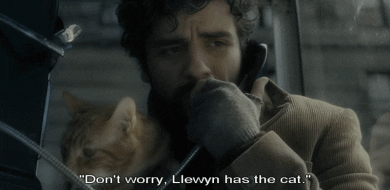
Stephen Spielberg
Whilst the Jewishness of Stephen Spielberg is a major attraction for me (Catch Me If You Can, his moody Christmas movie, comes across as weirdly Jewish to me), the thing that has solidified the guy as one of my favourite filmmakers is his approach to telling true stories. Unlike the Coen brothers, it’s Spielberg’s self-assuredness and didacticism that fuels my love of his work. His spate of recent, politically switched-on, historical dramas (Lincoln, Bridge of Spies and The Post) are all incredible achievements in effectively giving quiet dramas about people talking in rooms the tension and stakes of great action movies.
It’s the obvious thing to say at this point that Spielberg is one of the few genuine masters of the cinematic language, but while most will point to his massive, populist movies of the 80s and 90s as the definitive examples of that, I would point to his spottier late career with its moralising and earnestness as where his most exhilarating work lies.

Michael Mann
I like that Michael Mann is uncompromising. He makes films which, based on premise and star power, should be commercial knockouts, but they almost never are. He has an incredibly clear sense of self, and like Nolan has a lot of frequently recurring tropes in his films. Michael Mann makes films about Men Making Tough Choices™. He builds detailed, intensely researched worlds and he loves crime!
There’s something special when a filmmaker can tread the same ground over and over again and never convey the same central message twice. Nearly all of Mann’s movies are gritty, neo-noir thrillers with an obsessive attention to detail, but all of them deal with a totally distinct existential question which runs through every element of the film, from meta casting to set design, to music, to Mann’s pioneering use of digital photography. I’m just obsessed!

Stephen Soderbergh
Soderbergh is a hill that I’m going to be climbing for quite some time, I think. This is a guy who is relentlessly prolific, taking on a ridiculous number of roles on set himself, and working so fast that he often churns out multiple films in a year. With limited funds and a determination to watch movies legally, my progress through Soderbergh’s filmography has been slow, but I’ve loved every one I’ve watched so far.
As much as I love the guy’s mastery of the heist movie, and the way he slips those story telling devices into a lot of his non-heist stories, I think what really gets me about Soderbergh is the way his filmmaking style always seems to feel tooled towards portraying his characters with as much empathy as possible. Often his films are about people working or learning to empower themselves and coming to terms with their own identities. Anyway, go watch Out of Sight! It’s a damn masterpiece!

Kathryn Bigelow
Kathryn Bigelow’s career is full of insane ups and downs, but as far as I’m concerned, despite the difficulties she’s had getting her movies made and seen, she has three unqualified masterworks: Point Break, Strange Days and The Hurt Locker. On this list of directors, Bigelow has perhaps the most stylistically varied body of work, but her best work, much like that of other directors that I find myself drawn to, is largely concerned with obsession. Her characters are deeply flawed, but unwaveringly driven. What I love is that despite her drastic genre change from pulpy action thriller to hyper-realistic docudrama, she’s managed to hold on to that fascination with obsession, and an acute, outsider’s understanding of masculinity and its fragility.
Kathryn Bigelow has had to adapt to keep working, but because of that, she’s managed to develop a voice and a personality that is versatile enough to withstand her career shifts, but strong enough that it hasn’t been chipped away at by the difficulties she’s faced as a woman in Hollywood.
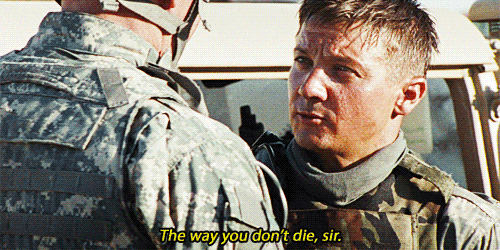
So, what was the point of all this?
Honestly, there wasn’t one. This was a piece of self-indulgence that allowed me to navigate an idea over which I was obsessing for a little while. That being said, I think if I had read something along these lines a few years ago, I would have delved into the world of director-focused movie watching far sooner. It’s hard to quickly and easily define the role of a director in contemporary film, particularly due to the ever growing influence of studios, but in the world in which the above filmmakers operate, the director has final say over all the creative decisions involved in putting together a movie. For me, the most exciting films are the ones that clearly and effectively communicate a single creative voice. Sue me, I love auteurs.
#miami vice#auteurs#christopher nolan#the prestige#the coen brothers#inside llewyn davis#stephen spielberg#the post#michael mann#collateral#steven soderbergh#out of sight#kathryn bigelow#the hurt locker#filmmakers#Jewish film#wanky bullshit
6 notes
·
View notes


